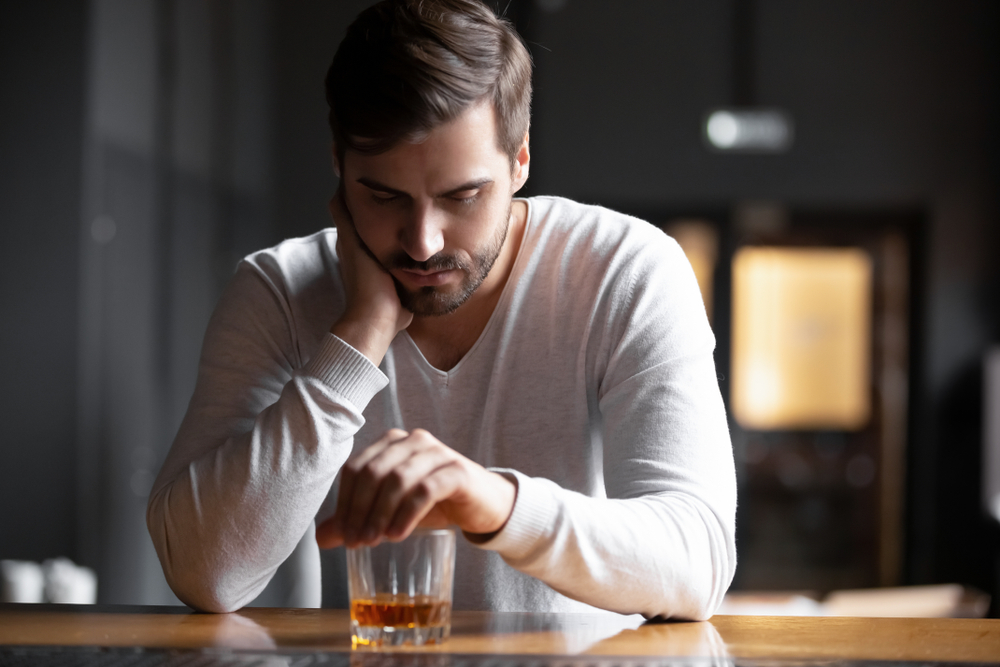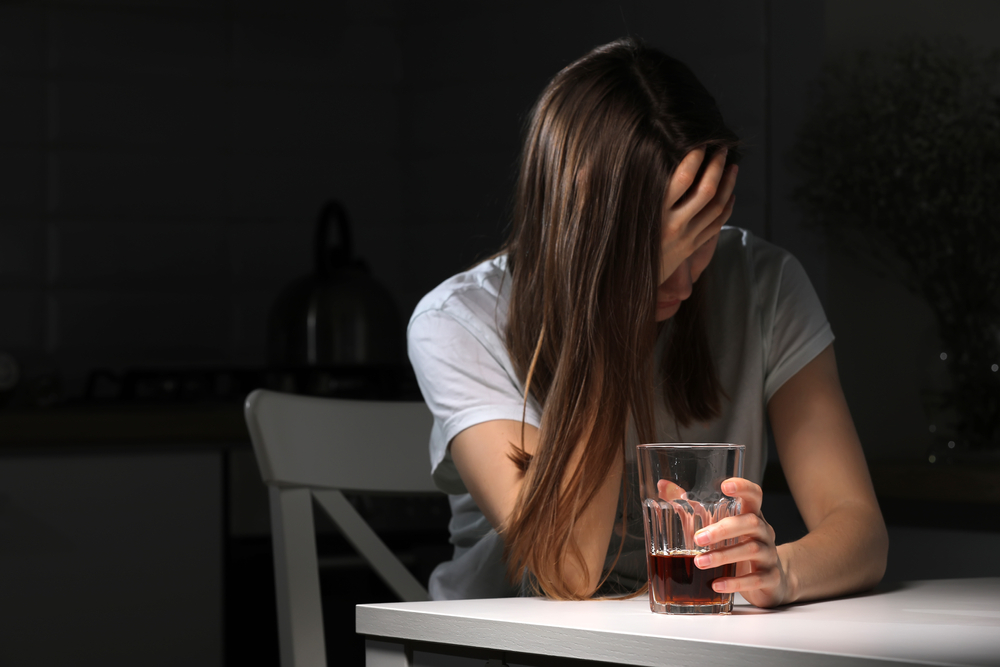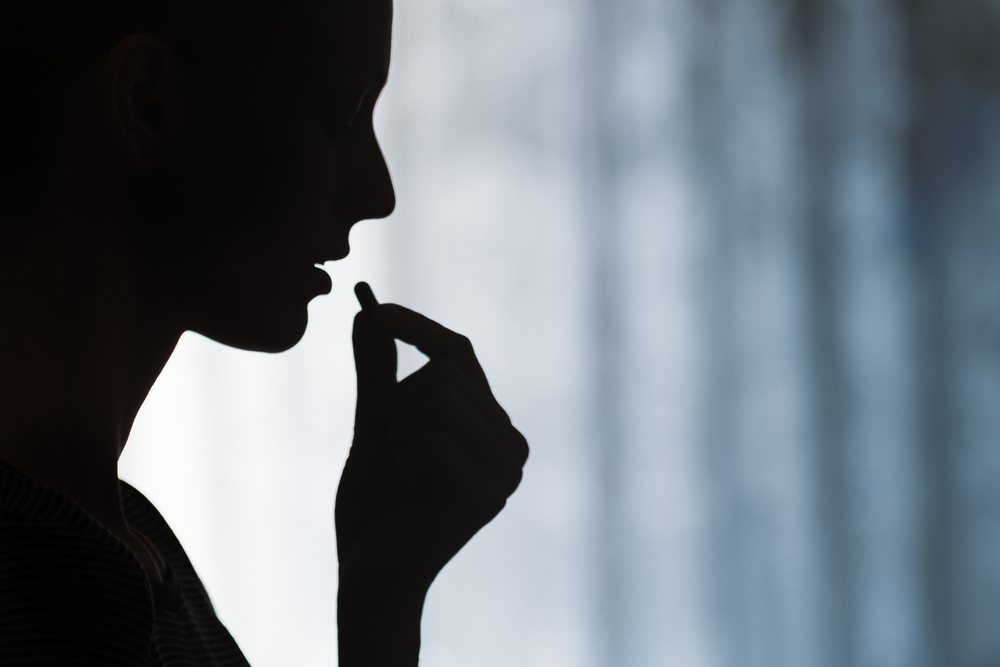People often ask if it is okay to combine Dramamine and alcohol. Dramamine is a drug employed to soothe motion sickness, vomiting, and dizziness. It is typically not suggested to consume Dramamine with alcohol as alcohol can intensify the side effects of the medication, including sleepiness and lightheadedness.
This article will explore the side effects and risks of combining Dramamine and alcohol, the dangers of misusing either substance, and what you can do if substance use has become dangerous to yourself or a loved one.
What is Dramamine?
Dimenhydrinate, the active ingredient in the commercial drug Dramamine, is a frequently used antihistamine that can be accessed without a doctor’s prescription. It is used to treat motion sickness ailments such as nausea, vomiting, and dizziness and is offered in the form of chewable or swallowable tablets.
Consuming Dramamine (dimenhydrinate) is not the exclusive option for treating motion sickness, as Bonine (meclizine) is another over-the-counter antihistamine that can be utilized for the same purpose. Both Dramamine and Bonine have a similar mechanism of action, and both medications should not be taken alongside alcohol due to the potential for drowsiness, dizziness, and difficulty remaining alert.
Although Dramamine is freely available, people should consult a doctor before taking it. If a person is thinking of consuming alcohol while taking Dramamine, they must be aware of the potential issues. It is not safe to consume both Dramamine and alcohol simultaneously as it can lead to serious side effects and increase the risk of dependence and addiction.
What Are The Side Effects of Dramamine?
A lot of the reactions to taking this medicine are short-term and can be handled if you are well-prepared. Before deciding to take Dramamine, it is important to be aware of the potential side effects which include:
– Dry mouth
– Drowsiness
– Blurred vision
– Constipation
– Dizziness
– Restlessness
Combining Dramamine and Alcohol
Taking Dramamine with alcohol may result in extreme tiredness or exhaustion. Both Dramamine and alcohol are depressants of the central nervous system, meaning they slow the activity of the brain. This joint effect can make you feel very sleepy or heavily sedated. Everyone’s body processes medications and substances differently, so it is difficult to predict how many drinks it would take to produce this reaction. For some, only one drink is enough. Although Dramamine can be used safely and effectively to treat motion sickness, it is best to avoid combining Dramamine with alcohol.
Dramamine is a medication that can be acquired without a doctor’s prescription, and it is typically sold in supermarkets and drugstores. Primarily, it is utilized to treat motion sickness, but it also has an effect on various processes in the human body, such as cognition, mood, alertness, sleep, and pain relief.

Anti-histamines, such as Dramamine, may disrupt bodily functions including motor skills, reaction time, and short-term memory, resulting in greater sleepiness. Likewise, alcohol is a depressant, which can cause drowsiness, sedation, coordination difficulties, slurred speech, and more. Alcohol consumption can have a negative impact on mood, behavior, and capacity for self-control. As a result, when Dramamine and alcohol are taken together, these effects can be amplified.
Dangers of Combining Alcohol with Medications
Alcohol on its own can cause extreme physical and mental damage when consumed in excess. When taken with other drugs, either illicit or legal, the likelihood of the user experiencing adverse reactions increases tenfold.
The consumption of alcohol can cause adverse reactions when taken with prescription medications, non-prescription drugs, and even some herbal medicines. In some situations, the medications may not be as effective when taken with alcohol, or they may not work at all. In other cases, the combination of alcohol and certain drugs may be dangerous to one’s health, such as with Dramamine.
Consuming even a little amount of alcohol can increase the negative effects of medications including drowsiness, sleepiness, and dizziness. This can hamper someone’s ability to drive safely or use machinery, which can pose a serious risk of injury or death. As alcohol can have a negative effect on a large number of drugs and herbal remedies, it is necessary to follow the warning labels on medications and consult with a doctor or pharmacist to ensure that it is safe to drink alcohol while taking any medications.
Signs of Alcohol Abuse
Alcohol use disorder (AUD) is a persistent issue that makes it tough to limit the consumption of alcohol, even after taking active measures. This disorder, also referred to as alcoholism, can be identified through the following indicators:
- Intense cravings
- Unable to quit
- Developing a high tolerance
- Experiencing withdrawal symptoms when not drinking
- No longer interested in things once enjoyed
- Legal trouble
- Change in appearance
- Lack of personal hygiene
- Keeping drinking habit a secret
- Drinking at inappropriate times

Can You Overdose on Dramamine and Alcohol?
It is possible to take too much of either alcohol or an over-the-counter motion sickness medication such as Dramamine, and it is also possible to have an overdose when both substances are used together. If anything, when drinking alcohol and taking Dramamine, the risk of overdose is intensified. Signs someone may have overdosed include:
- Slurred speech
- Extreme fatigue
- Confusion
- Flushed skin
- Dilated pupils
- Hallucinations
- Swallowing issues
If someone has ingested an excessive amount of Dramamine and alcohol, it is essential to seek medical attention right away. An overdose of these two substances together can be extremely dangerous and, in some cases, fatal.
Do People Misuse Dramamine?
It has recently become more common for Dramamine to be misused, making it less available without a prescription. Research indicates that chronic usage and dosages higher than 100 mg can lead to addiction. Taking Dramamine at this level can produce sedation, visual and auditory hallucinations, and a sense of euphoria. If large doses of Dramamine are taken in conjunction with alcohol, the risks of adverse reactions are significantly higher. Those who take a lot of Dramamine and drink lots of alcohol are at the highest risk of experiencing severe side effects.
Alternative Treatments for Motion Sickness
You may be able to avoid experiencing motion sickness by taking steps to minimize sources of physical or mental distress before being exposed to the trigger. This might involve abstaining from alcoholic drinks, eating a light snack prior to traveling, or picking certain types of food to avoid an upset stomach. Additionally, getting adequate sleep can reduce your exposure to movements that cause sickness.
It’s important to make sure you’re well-hydrated and nourished before you get moving. To help deal with motion sickness, you can try to distract yourself, or use different strategies such as listening to music, doing mindfulness exercises, or trying some specific breathing exercises. Ginger root has been suggested as a remedy for motion sickness, but research suggests it’s more of a placebo effect than an actual cure.
It would be wise to consult your physician about alternate drugs that could be used to treat motion sickness instead of Dramamine. These could have less severe side effects and interactions with alcohol, as well as a lower likelihood of dangerous symptoms.
Treatment for Dramamine and Alcohol Abuse
If you have been diagnosed with alcohol dependence and want to end your drinking habit, a residential or outpatient rehabilitation program can assist you in attaining and sustaining sobriety. These programs involve a range of therapies, such as one-on-one and group psychotherapy, medication management, and interaction-based activities – like Alcoholics Anonymous meetings and experiential activities.

If you are concerned about taking Dramamine, you can manage and treat motion sickness without medical drugs through alternative strategies. Make preparations ahead of time for occasions when you might feel motion sickness, such as spotting the factors that bring on your motion sickness.
Alcoholism Treatment in Asheville, NC
Thankfully, there are means to stop bad habits and offer aid to those who are already suffering. If you or someone you are aware of is having difficulty with addiction, it is essential to seek treatment. At Asheville Recovery Center, treatment experts use a 12-step approach and focus on holistic rehabilitation. Services and treatment programs at our center include, but are not limited to:
Partial Hospitalization Program (PHP)
At Asheville Recovery Center, we provide a Partial Hospitalization Program (PHP) to individuals who need support after completing a residential treatment program and those who require primary treatment but cannot commit to inpatient services. Our PHP track offers a range of therapeutic services to individuals who are just starting out on their recovery journey from substance abuse.
Intensive Outpatient Program (IOP)
Outpatient Rehabilitation – Clients who engage in intensive outpatient treatment (IOP) can live either in their homes or in a sober living residence while taking part in a recovery program. IOP provides the opportunity for those in the program to reflect on their experiences with twelve-step fellowships and to support each other in their individual paths to sobriety.
It can be hard to get over addiction without assistance. If you or someone close to you is having a hard time, our professionals are prepared to offer aid.
Call us today to speak with an addiction specialist. We are here for you.







